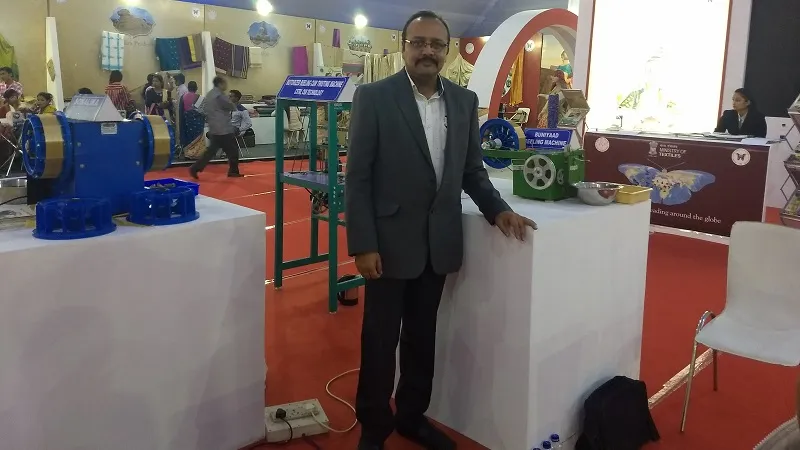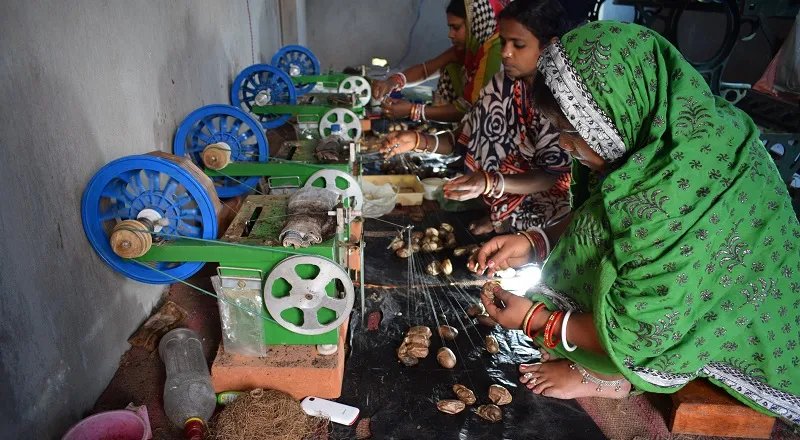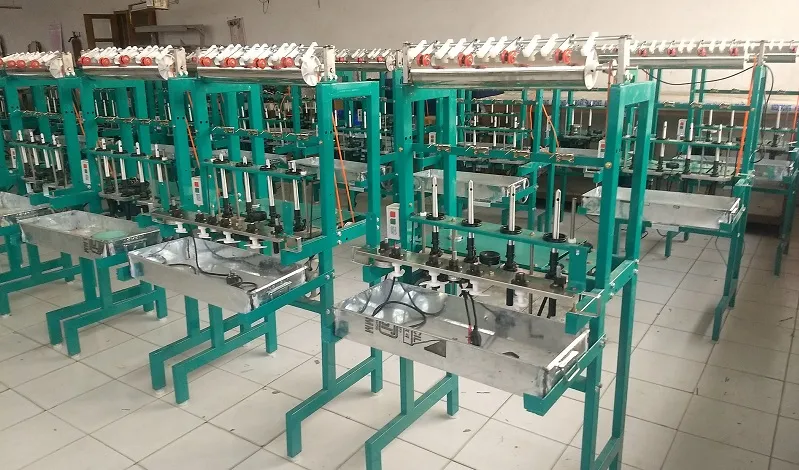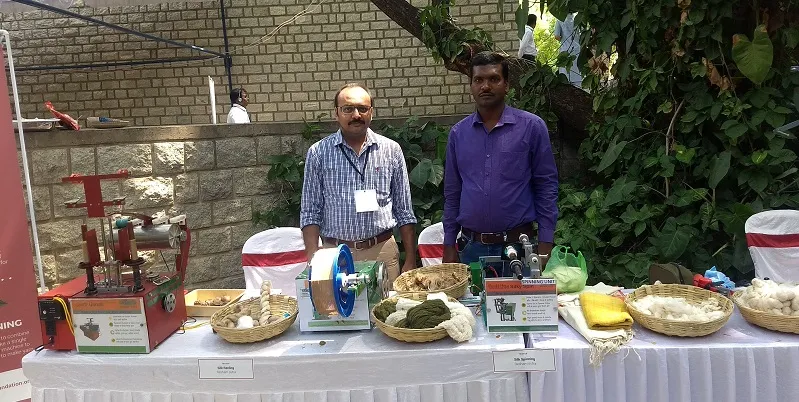How Resham Sutra is making the lives of rural silk weavers better
Delhi-based agritech startup Resham Sutra makes solar energy-based machines that empower rural silk weavers, women, and their families to improve productivity, increase their income, and lead better lives.
After completing his MBA from Management Development Institute, Gurugram, Kunal Vaid decided to join his family business Needlepointe Textile Products Pvt. Ltd. in Delhi.
Kunal worked with Needlepointe, which had partnered with the Jharkhand Government to market the world’s first organic certified silk products from the state, for nearly a decade.

Kunal Vaid
In 2011, Kunal decided to visit the weaver communities in Jharkhand to understand the bottlenecks in the production process. During his trip, he was exposed to the extreme agony and drudgery rural women went through to make Tussar silk yarn.
He saw women used the ‘thigh reeling’ method, and, in the process, had got cuts all over their skin and suffered from backache and joint pains. They were also socially looked down upon because of their work.
Pained, Kunal decided to leverage new-age technologies to help these rural women free themselves from the process of thigh reeling.
With that thought in mind, he started working on a machine that would provide these women better productivity, quality of life, and free them from the painful manufacturing process.
Started as a hobby for Kunal, this project soon blossomed into Resham Sutra five years later as the demand for his prototype machine increased.
In 2015, Kunal established Resham Sutra in Delhi to enable India’s rural entrepreneurs to profitably produce and market a variety of silk and handloom products and a wide range of affordable electric reeling, weaving, and spinning machines.
Sustainable development
Most of Resham Sutra’s machines are powered by solar energy, which vastly improves the working conditions and creates a predictable and dramatically higher income for over 10,000 silk workers in India.

Women of Odisha's Fakirpur village work on Resham Sutra's machines
To date, Resham Sutra has commercialised seven user-friendly machines.
“We want to showcase all-around rural development can be done sustainably and profitably through innovations in business models, technology, and marketing,” Kunal says.
The startup helps rural silk yarn producers and fabric weavers to install these machines, which increases their income and reduces physical drudgery and mental stress.
Kunal says users and beneficiaries are exposed to the utilities of solar power for daily life applications so they can use it for other applications like lighting and cooking.
“Resham Sutra’s deployed machines collectively reduce greenhouse gas emissions by around 6,000 tons per annum,” he claims.
Resham Sutra’s machines are sold through its network of on-ground field representatives, who also offer sales and service of the products. The enterprise partners with various NGOs, government agencies, and rural entrepreneurs in various locations.
Additionally, Resham Sutra has set up several rural experience centres (RECs) in major rural clusters, which provides complete buying support to customers, including product demonstrations, test runs, financing support, and after-sales training and technical support.
In fact, RECs support producers in villages to do value-addition of making yarn and fabric within their communities using locally available raw material and further provide support for marketing and sales of the products.
Creating livelihoods
Resham Sutra conducts its activities in some of the poorest regions in the country. These activities mainly include silk cocoon rearing with tribals in forest areas of Jharkhand and other states, silk yarn spinning and reeling with rural women in Jharkhand, Odisha, and Chattisgarh, and handloom weaving with traditional hand weavers in various eastern and northeastern states of India.

Resham Sutra machines in the factory
The startup is also working towards setting up a hybrid marketplace, product certifications, better design inputs, and the backing of strong brand names. All these factors combined improve market access for Resham Sutra’s partner producers.
With a team of 20 core members, Resham Sutra facilitates the setting up of integrated farm-to-retail value chains and aggregating rural producers to launch producer-owned companies, which facilitates a better share of product realisation for rural producers and micro-entrepreneurs.
According to the founder, Resham Sutra’s innovations have directly impacted over 12,000 rural women and their families by improving their productivity and income. Further, it has helped train over 300 women through the RECs set up.
“With Resham Sutra’s aid, their beneficiaries become self-employed and have a regular source of sustainable income. This is in contrast to the previously existing scenario of the beneficiaries, where they were, at best, daily wage earners with irregular and seasonal jobs,” Kunal explains.
Making an impact
Resham Sutra has won the prestigious Ashden Award (UK) for “powering rural businesses” and the ISHOW award by the American Society of Mechanical Engineers. In 2020, it was chosen as one of the ‘Top 10 startups in Agri-Tech’ by the National Startup Mission, Government of India.

Demonstration of Resham Sutra machines at IIM-Bangalore
Resham Sutra is backed by the Powering Livelihoods programme, jointly run by Council On Energy, Environment, and Water (CEEW) and Villgro Innovations Foundation.
Since its inception, the startup claims to have seen a 50-100 percent annual growth. As more new initiatives are reaching breakeven points, Resham Sutra is expected to grow in the coming years.
Resham Sutra recently received its first institutional funding for an undisclosed amount from Upaya Social Ventures. It has also secured a grant through Villgro and CEEW’s Powering Livelihoods initiative.
The agritech startup is also developing a value chain integration app for easier traceability, making all the stakeholders present on one platform.
Edited by Suman Singh








